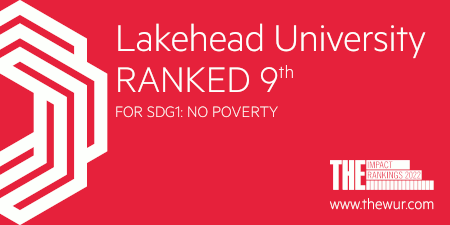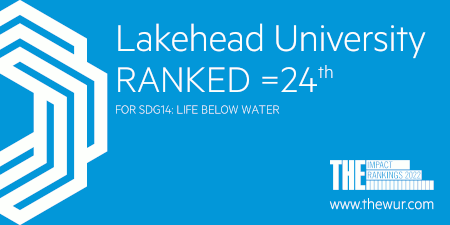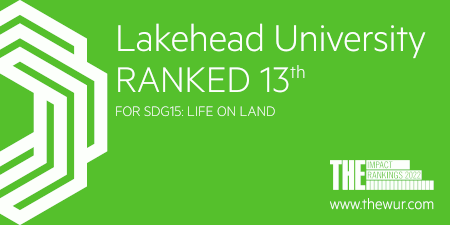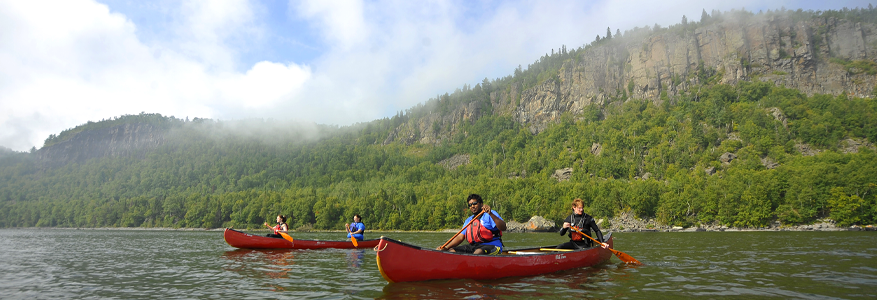The Lakehead Advantage
Lakehead Ranks in the Top 5% of Times Higher Education's Global Impact Rankings
Over 1,500 universities from 110 countries/regions around the world participated in the 2022 Times Higher Education Global Impact Rankings. Lakehead University is proud to have ranked 64th in the world and scored in the top 25 universities globally in a number of categories.
Lakehead participated, and is ranked, in all of the Sustainable Development Goals (SGDs), reflective of the University's commitments in its Strategic and Academic Plans to be a leader in sustainability. This performance illustrates the transformational power of education, research and discovery of Lakehead in the local regions it serves and on a broader, international scale.
For the third year in a row, Lakehead has been ranked as one of the top universities in the world.
Lakehead scored in the top 25 universities globally in a number of SDGs, including:
- SDG 1: No Poverty (Ranked 9th globally)
- SDG 14: Life Below Water (Ranked 24th globally)
- SDG 15: Life on Land (Ranked 13th globally)
In addition, Lakehead scored in the top 100 universities globally in a number of SDGs, including:
- SDG 2: Zero Hunger (Ranked 29th globally)
- SDG 3: Good Health and Well-Being (Ranked 95th globally)
- SDG 6: Clean Water and Sanitation (Ranked 71st globally)
- SDG 7: Affordable and Clean Energy (Ranked 88th globally)
- SDG 10: Reduced Inequalities (Ranked 76th globally)
- SDG 13: Climate Action (Ranked 94th globally)

Sustainable Development Goal 1 - No Poverty
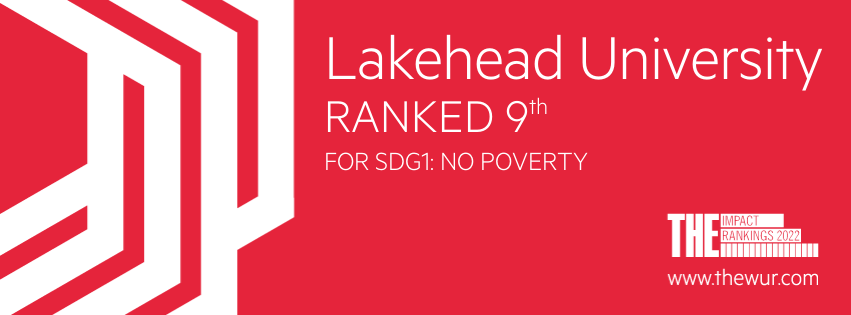
This ranking focuses on universities' research on poverty and their support for poor students and poor members of their local community.
Lakehead University's campuses are located in regions in which the median income is below the provincial and national average. As one of the largest employers, post-secondary institutions and economic hubs in Northwestern Ontario and Simcoe County, Lakehead University has a direct impact on the economic and social resiliency in the regions it serves.
Sustainable Development Goal 14 - Life Below Water
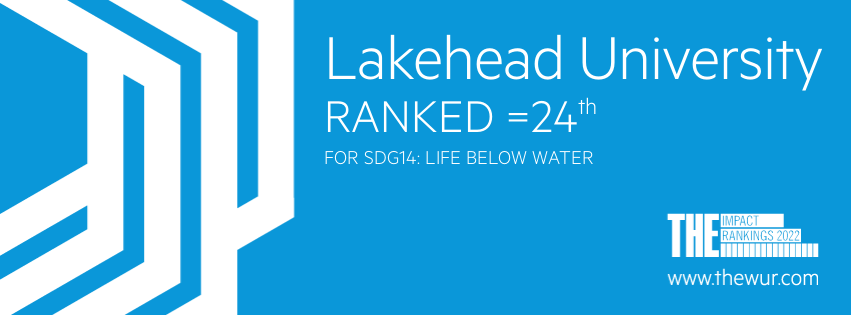
This ranking explores universities' research on life below water and education on and support for aquatic ecosystems.
Lakehead University offers the only undergraduate program in Canada specializing in water resources, Honours Bachelor of Science in Water Resource Science. Located along the shore of Lake Superior, and surrounded by rivers and small inland lakes, the University's setting provides a natural laboratory to gain the skills and knowledge to protect and advocate for our most valuable resource.
And, through partnerships such as the Lake Superior Living Labs, and collaborations with organizations such as the International Institute for Sustainable Development Experimental Lakes Area (IISD-ELA), Lakehead faculty researchers and students continue to study lakes and watersheds to understand how human populations affect freshwater systems, and work towards innovative solutions focused on climate action.
Sustainable Development Goal 15 - Life on Land

This ranking explores universities' research on life on land and education on and support for land ecosystems.
Lakehead University, located on the north shore of Lake Superior and in the boreal forest region, has a unique role to play in contributing to the advancement of SDG 15, Life on Land. Through dedicated programming focused on developing future leaders in areas including natural resources management, and environmental studies, and through collaborative local and international research partnerships, and ongoing community education, Lakehead University is actively contributing to sustainably managing forests, halting and reversing land degradation, and combating biodiversity loss.

